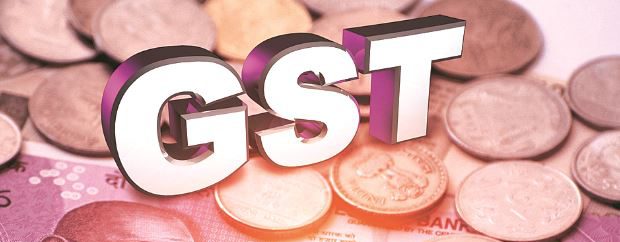How can I get GST details from PAN number?
GST, short for Goods and Services Tax, is a comprehensive indirect tax implemented in India on 1st July 2017. It replaced a complex web of multiple indirect taxes levied by the central and state governments, such as Value Added Tax (VAT), Service Tax, Central Excise Duty, and various other levies.
GST was introduced with the aim of simplifying the tax structure, eliminating cascading effects, promoting ease of doing business, and creating a unified national market. Here’s an explanation of GST in India:
Structure and Applicability:
GST is a destination-based tax that is levied on the supply of goods and services. It follows a dual structure, consisting of Central Goods and Services Tax (CGST) levied by the Central Government and State Goods and Services Tax (SGST) levied by the State Governments.
In the case of inter-state transactions, an Integrated Goods and Services Tax (IGST) is levied by the Central Government.
GST that has GST registration in Coimbatore is applicable to businesses whose annual turnover exceeds the threshold limit, which is currently set at Rs. 40 lakhs for small businesses (Rs. 20 lakhs for some special category states).
Additionally, certain businesses, irrespective of their turnover, are mandatorily required to register for GST, such as those engaged in inter-state supply, e-commerce operators, and businesses involved in specified categories.
GST Registration and Compliance:
Under GST, businesses are required to obtain GST registration and obtain a unique identification number known as GSTIN (GST Identification Number). GST registration in Chennai enables businesses to collect and remit GST to the government.
It involves providing relevant details about the business, such as PAN (Permanent Account Number), address, business type, and other required information.
Registered businesses are required to comply with various GST provisions, including regular filing of GST returns, maintaining proper books of accounts, issuing GST-compliant invoices, and adhering to specific compliance timelines. Non-compliance can result in penalties, interest, and legal consequences.
GST Tax Slabs:
GST introduced a multi-tier tax structure with different tax rates for different goods and services. The tax rates are classified into four broad categories: 5%, 12%, 18%, and 28%. Additionally, certain essential goods and services are either exempt from GST or subject to a nil tax rate.
The classification of goods and services under different tax slabs is based on factors such as their nature, essentiality, and impact on the economy. The GST Council, which comprises representatives from the Central and State Governments, determines the tax rates and revises them periodically.
Input Tax Credit (ITC):
One of the significant features of GST that has GST registration in Bangalore is the availability of Input Tax Credit (ITC). ITC allows businesses to claim a credit for the GST paid on inputs or input services used in the course of business.
It eliminates the cascading effect of taxes and ensures that businesses are taxed only on the value they add at each stage of the supply chain.
Few benefits
Simplified Tax Structure:
GST replaced multiple taxes, reducing the complexity and compliance burden for businesses. It streamlined the tax system and brought uniformity in tax rates across the country.
Elimination of Cascading Effect:
By allowing ITC, GST eliminated the cascading effect of taxes, leading to a reduction in prices and making Indian products more competitive.
Wider Tax Base:
GST expanded the tax base by bringing more businesses under the tax net. This increased the tax revenue for the government, enabling investments in infrastructure development and welfare programs.
Promoting Ease of Doing Business:er
GST simplified processes, such as GST registration in Kochi, filing returns, and claiming refunds, making it easier for businesses to comply with tax regulations.
How can I get GST details from PAN?
Getting GST details from a PAN number involves obtaining information about a business’s Goods and Services Tax (GST) registration status, including the GSTIN (GST Identification Number), registration date, and other relevant details.
While it is not possible to directly extract complete GST details from a PAN number, there are certain methods and steps that can provide some information about a business’s GST registration in Tirupur. Here’s an explanation of how you can gather GST details using a PAN number:

GST Portal:
The GST Portal, operated by the Goods and Services Tax Network (GSTN), is the official platform for GST registration, filing returns, and accessing GST-related information in India. While the portal does not provide direct access to GST details using a PAN number, it serves as a starting point for obtaining relevant information.
To access the GST Portal, visit the official website. On the portal, navigate to the “Search Taxpayer” option under the “Search” tab. Here, you can search for a taxpayer using their PAN number, GSTIN, or legal name.
By entering the PAN number in the search field, you can retrieve basic information such as the legal name of the business, the state in which it is registered, and the status of its GST registration in Salem (active, cancelled, or surrendered). However, note that this information alone may not provide comprehensive GST details.
Government or Professional Assistance: If you require comprehensive GST details for a specific business and are unable to obtain them through the above methods, you may consider seeking assistance from government authorities or professional consultants.
You can approach the GST Helpdesk operated by the GSTN for guidance. The helpdesk provides assistance and answers to queries related to GST registration in Madurai, compliance, and access to GST details. While they may not directly provide GST details based on a PAN number, they can guide you on the appropriate steps to obtain the required information.
Alternatively, engaging professional consultants or tax experts who specialize in GST can be beneficial. These professionals have experience and knowledge in dealing with GST-related matters and can assist in gathering GST details based on PAN numbers through appropriate channels and processes.
It’s important to note that GST details are considered confidential and are subject to data privacy regulations. Therefore, accessing detailed GST information may require proper authorization, legitimate reasons, or the consent of the concerned business.
Conclusion
In summary, while it is not possible to directly obtain complete GST details from a PAN number, there are certain methods that can provide some information about a business’s GST registration status.
These methods include using the GST Portal to retrieve basic information, exploring services offered by authorized GST Providers, seeking assistance from government helpdesks, or consulting with professional tax experts. However, it’s crucial to ensure compliance with data privacy regulations and obtain proper authorization when accessing GST details.

